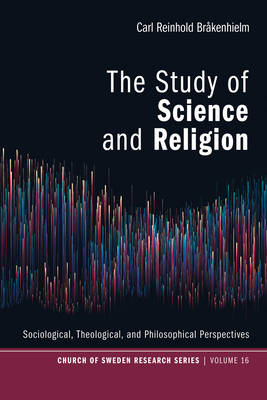
- Retrait gratuit dans votre magasin Club
- 7.000.000 titres dans notre catalogue
- Payer en toute sécurité
- Toujours un magasin près de chez vous
- Retrait gratuit dans votre magasin Club
- 7.000.000 titres dans notre catalogue
- Payer en toute sécurité
- Toujours un magasin près de chez vous
Description
The main aim of this book is to contribute to the relationship between science and religion. This book aims to do constructive theological work out of a particular cultural context. The point of departure is contemporary Swedish religion and worldviews. One focus is the process of biologization (i.e., how the worldviews of the general public in Sweden are shaped by biological science). Is there a gap between Swedes in general and the perceptions of Swedish clergy? The answer is based on sociological studies on science and religion in Sweden and the United States. Furthermore, the book contains a study of Swedish theologians, from Nathan Soderblom to the present Archbishop Antje Jackelen, and their shifting understanding of the relation between science and religion. The philosophical aspects of this relation are given special consideration. What models of the relation inform the contemporary scholarly discussion? Are science and religion in conflict, separate, or in mutual creative interaction? ""Brakenhielm presents a valuable contribution to the understanding of the relationship between science and religion. Especially important is his research of how this relationship is perceived by the general public. His is among the few studies that in detail show how it is 'out there'--how science and religion interact in the minds of ordinary people. He also discloses striking differences between the contexts in Sweden and the United States, which tell us that there is more than one way to understand how science, religion and faith interact in the present."" --Jan-Olav Henriksen, Professor of Philosophy of Religion, MF Norwegian School of Theology, Oslo ""This is a challenging and stimulating book which explores the relationship between science and religion. It integrates philosophical, theological, and empirical studies in a very illuminative and unique way."" --Mikael Stenmark, Professor of Philosophy of Religion, Uppsala University Carl Reinhold Brakenhielm is Professor Emeritus in the study of worldviews at Uppsala University. His research concerns worldviews and values in contemporary society as well as sociological, theological, and philosophical problems related to the relationship between science and religion. He is the author of Forgiveness (1993). His latest writings in English include ""Theology and the Origins of Customized Science"" (included in The Customization of Science, 2014).
Spécifications
Parties prenantes
- Auteur(s) :
- Editeur:
Contenu
- Nombre de pages :
- 346
- Langue:
- Anglais
- Collection :
- Tome:
- n° 16
Caractéristiques
- EAN:
- 9781532619687
- Date de parution :
- 06-06-18
- Format:
- Livre broché
- Format numérique:
- Trade paperback (VS)
- Dimensions :
- 152 mm x 229 mm
- Poids :
- 498 g







